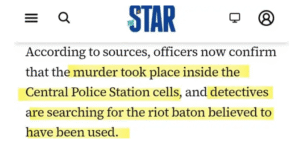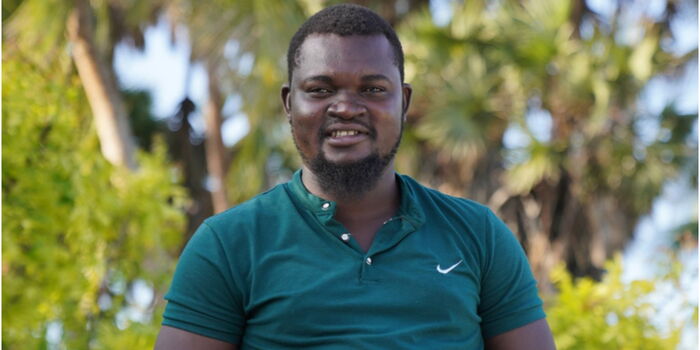The mysterious death of Albert Ojwang, a teacher and digital content creator, while in police custody has left many Kenyans in shock and anger. What began as a simple arrest has now turned into a chilling story of brutality, corruption, and a possible cover-up by those meant to protect the public.
Ojwang was first arrested in Homa Bay on allegations of publishing false information, but he was later transferred to Nairobi’s Central Police Station. Not long after arriving at the station, Ojwang died under suspicious circumstances. Reports now show that he was brutally assaulted while in the cells, with detectives identifying a riot baton as the weapon used in the fatal beating.
The case took a serious twist after the arrest of Station Commander Samson Talam. It is said that Talam went into hiding in Eldoret and switched off his phone to avoid being tracked by the authorities.
However, he was eventually found and handed over to the Independent Policing Oversight Authority (IPOA), making him the third suspect to be arrested over the death of Ojwang. This arrest raised more questions about what really happened that night and why such efforts were made to hide the truth.

The STAR report that highlight Albert Ojwang was bitten by a Riot baton as murder weapon.
A female officer has also come under investigation, having spent hours being interrogated by detectives. She remains under close watch as investigators try to understand her role in the events leading to Ojwang’s death.
The details coming out of the investigation are disturbing. One of the most shocking revelations is that the riot baton believed to have been used was secretly removed from the scene, possibly to destroy evidence.
Even worse, a CCTV technician admitted that he was paid to delete important surveillance footage from the night Ojwang died. This has raised fears that a wider group may be involved in the cover-up.
So far, 23 individuals have been questioned by IPOA, including 17 police officers. Some of these officers have reportedly changed their earlier statements, most likely due to growing pressure from the public and human rights groups.
The case has shown how deep the rot may go within the police force and how hard it can be to get justice when those involved are the same ones in charge of the investigation.

Slain Activist Albert Ojwang. Photo courtesy
Constable James Mukhwana has now been detained with court approval after IPOA raised concerns that he might interfere with witnesses or tamper with evidence.
Forensic results and phone records are expected to be key in showing exactly what happened. Many Kenyans are watching closely, hoping that this will not be another case that gets swept like many other cases we’ve been witnessing in the past.
The anger and calls for justice are growing louder, as this case has again reminded the country of the long-standing problem of police brutality and lack of accountability.
There is a lot of pressure on IPOA and other institutions to ensure justice is served. Ojwang’s death has become more than just another case. It represents the struggles many face when dealing with a system that often protects the guilty while silencing the victims.



